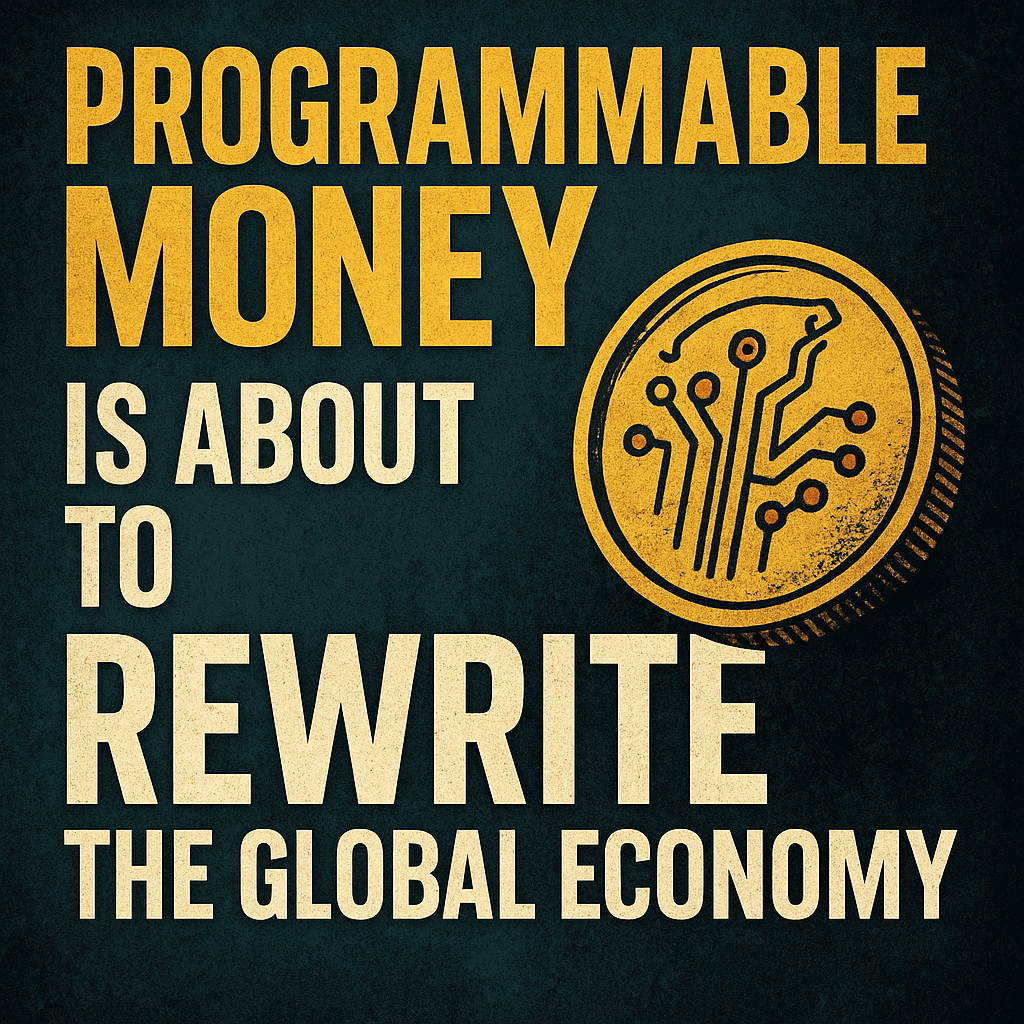Money has always been a stubborn, untrained beast. You earn it, you spend it, and the moment it leaves your hands it vanishes into someone else’s universe with zero memory, zero logic, and zero loyalty. For centuries, traditional money has been a blunt instrument pretending to be a system — more Labrador on espresso than intelligent asset.
But something seismic is happening.
Something that will rewrite the global economy faster than the internet rewrote communication.
We’ve reached the moment where money can finally think.
This is the age of programmable money, and it will transform the world so profoundly that today’s banking systems will look like rotary phones in a world of smartphones.
Imagine money with superpowers.
Money that refuses fraud.
Money that verifies identity before it moves.
Money that splits itself automatically: 10 percent to savings, 3 percent to taxes, 1 percent to the community treasury.
Money that pays the builder only when the foundations pass inspection.
Money that distributes yield from cattle sales, gold revenues, or solar power — instantly — to every legitimate owner.
This isn’t crypto hype.
This is the new operating system for global finance.
For the first time in human history, money can carry instructions.
A cattle token can pay every farmer in a cooperative without a single accountant.
A gold-backed stablecoin can rebalance itself using AI.
A vending-machine token can send dividends to fractional owners every time someone buys a beer, a coffee, or a sandwich.
A diaspora investment token can enforce transparency across borders without lawyers, brokers, or middlemen.
Traditional money can’t do any of this. It’s blind. It’s static. It’s obedient to whoever holds it — not to the rules meant to govern it.
Programmable money is alive.
And here’s the twist that should make every banker sit up straight:
Once money becomes programmable, it stops being “just money.”
It becomes governance.
It becomes compliance.
It becomes culture encoded into logic.
It becomes a community’s economic constitution.
Think about how ancient coins carried the faces of kings because money symbolized power.
In the emerging world, tokens carry rules because money symbolizes coordination.
Communities, cities, nations, and diaspora networks can now write their own economic physics.
They can create wealth loops that stay inside the community.
They can design tokens where every purchase, every repayment, every yield event strengthens the entire ecosystem.
A mortgage token in a smart city can quietly route a sliver of every repayment into a communal treasury — making the entire city richer with every transaction.
A cooperative token can ensure profits flow to workers instead of disappearing into bureaucracy.
An RWA-backed stablecoin can turn gold, cattle, or land into liquid, programmable economic engines.
This is money that remembers.
Money that reacts.
Money that refuses to misbehave.
The world is about to learn that programmable money doesn’t just change how we pay — it changes who gets to win.
The first trillion-dollar communities will not be built by countries with the most natural resources. They will be built by those who master the logic of programmable money. Communities that rewrite the rules. Diasporas that pool their strength. Entrepreneurs who turn assets into autonomous engines.
The future belongs to the people who stop treating money as paper…
…and start treating it as software.
Programmable money isn’t coming.
It’s here.
And it’s about to flip global power on its head.

Leave a Reply